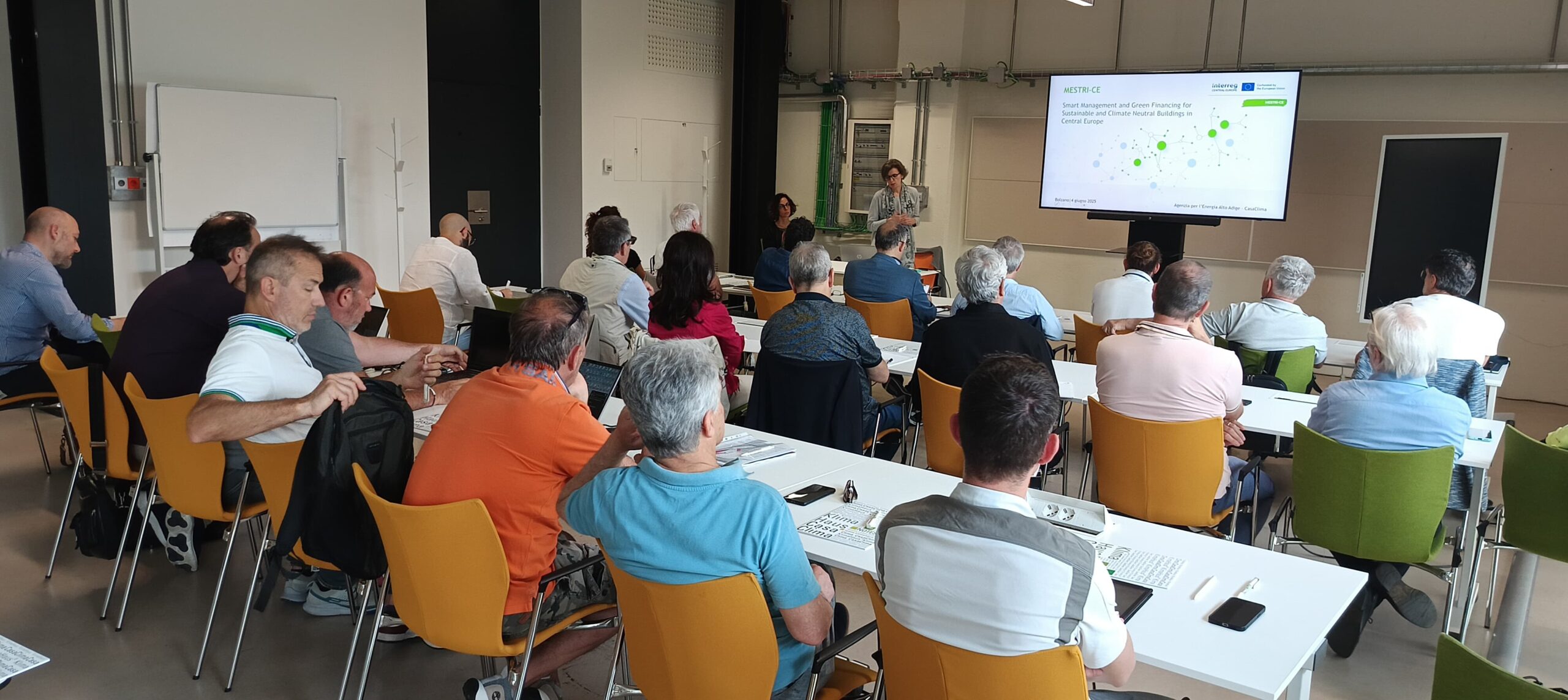Both workshops were held in person, but the second one also offered a hybrid format—participants who had already attended the first session could follow the afternoon segment remotely. This flexible approach helped maximize participation and knowledge sharing.
Each training was structured as a one-day event. The mornings were dedicated to setting the stage: participants received an overview of the MESTRI-CE project’s main goals and updates from the different work packages. They were introduced to the Smart Data Hub, the Sustainable Building Methodology, and the Evaluation Tool. A thorough analysis of the European framework on energy efficiency and sustainability in buildings followed, including key updates on the EPBD (Energy Performance of Buildings Directive) and the European Taxonomy. A special focus was given to Level(s), the EU’s core framework for sustainable building performance, which is gaining momentum as a key reference in Italy.
The afternoon sessions dove deeper into technical topics, each day highlighting a different aspect of sustainable building.
On June 4th, the spotlight was on the Global Warming Potential (GWP) indicator, with a detailed discussion about operational emissions versus embodied emissions—those tied to materials, construction, and end-of-life phases. Participants were also introduced to Life Cycle Assessment (LCA), a vital tool for assessing a building’s full environmental footprint.
The second workshop, held on June 27th, shifted focus to climate change adaptation and biodiversity at the urban and building scale. The session covered the latest developments in both the European and Italian regulatory frameworks, particularly how these are being shaped by the EU Taxonomy, Level(s), and the upcoming updates to Italy’s Minimum Environmental Criteria. To make these concepts tangible, participants received translated best practices from EU technical guidance on adapting buildings to climate change.
Participation was strong across both sessions:
29 people joined the first training in person
The second workshop saw 16 in-person participants and 18 remote attendees
With strong engagement and valuable exchanges, these workshops mark a key step in supporting professionals as they navigate the evolving landscape of sustainable building development. The final training in September promises to build on this momentum—stay tuned!
